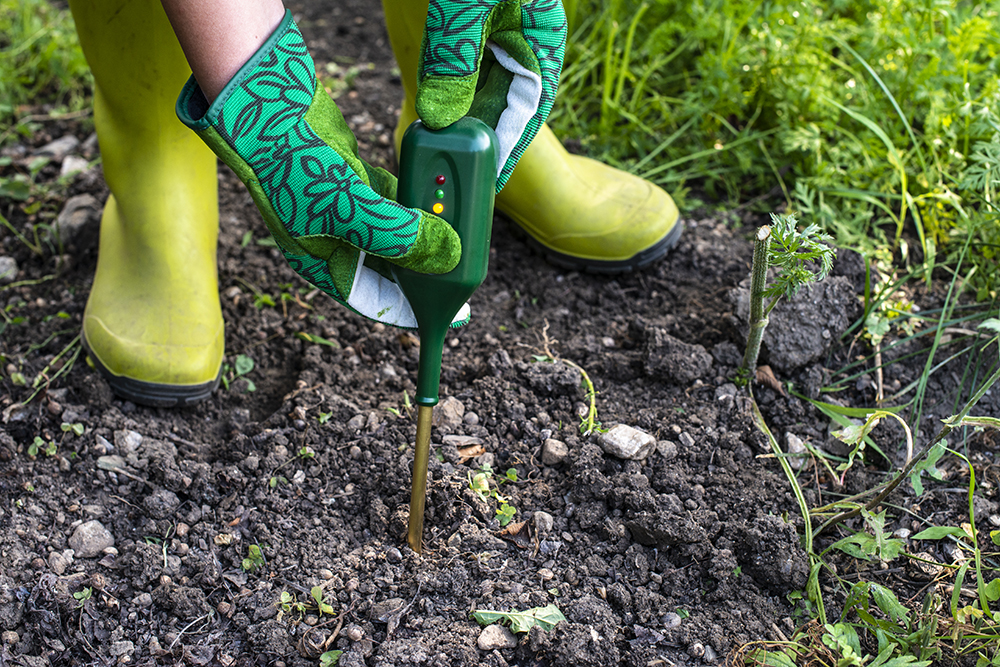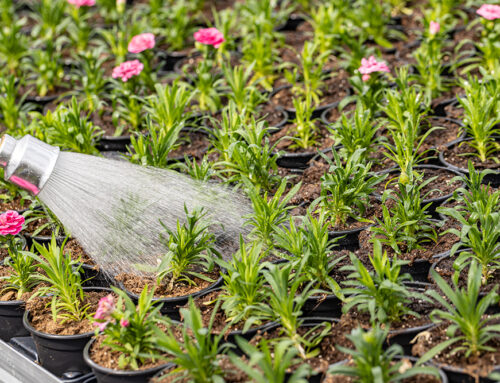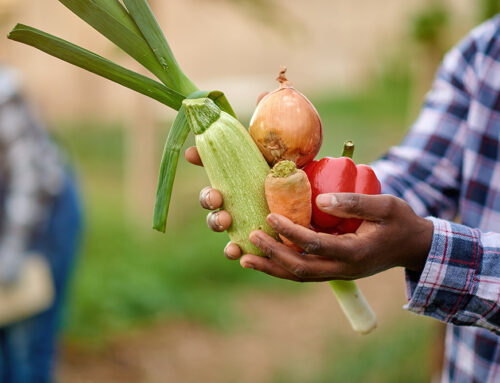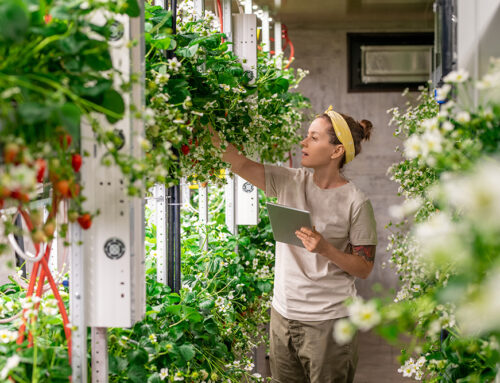If you love growing plants and vegetables in your garden, then you already know how important soil quality is to their health and growth. Healthy soil doesn’t just happen on its own; it has to be given the right balance of essential nutrients that plants need to thrive.
If your existing soil isn’t up to par or needs a boost, plenty of strategies can help add vital nutrients back into the mix. Read on for ten ways to improve your garden soil by adding healthy volume and fertility!
Soil Nutrients That Plants Need
Before we dive into the ten ways of adding nutrients to the soil, it’s important to know what essential elements your plants need from the soil.
The three essential components that all plants need are:
- Nitrogen: Aids in good leafy growth is usually the primary nutrient for which soil test check.
- Phosphorus: Boosts root structure and aids in flowering, fruiting, and seed production. Phosphorus also helps to activate other nutrients like iron, zinc, and magnesium.
- Potassium: Enhances disease resistance of plants, encourages strong cell walls, and helps plants become more drought-tolerant.
- Sulfur: It is vital for chlorophyll production and photosynthesis and helps create proteins and enzymes.
- Magnesium: Assists with photosynthesis, activates enzymes, strengthens cell walls, and is essential for chlorophyll production.
Other essential nutrients for healthy plants include iron, manganese, zinc, boron, and copper.
10 Ways to Add Nutrients to Soil
Soil structure and fertility can be improved in a variety of ways. Here are ten of the most effective methods for adding nutrients to the soil and boosting your garden’s health:
1. Organic Matter
Adding organic matter such as compost or manure is a great way to add nutrients to your soil naturally. When you add organic matter to the soil, it helps to improve the soil structure, and it increases nutrient availability for plants.
Organic amendments contains small amounts of nitrogen, phosphorus, and potassium as well as a range of micro-nutrients and trace elements which help promote more beneficial micro-organisms that further break down the organic matter, improving the soil structure.
As a bonus, when organic matter breaks down in your soil, it also helps to increase water-holding capacity and improves nutrient availability for plants. Adding these natural amendments can make a big difference in healthy plants thriving!
2. Peat Moss
Garden beds can benefit from adding peat moss, an excellent source of organic matter that helps increase soil fertility and structure. Peat moss helps to lighten clay soils and can help sandy soils retain moisture more effectively.
Besides providing aeration and water retention, peat moss is also incredibly helpful in improving soil health.
By helping to increase the number of beneficial microorganisms in a garden or farm, peat moss enables plant roots to absorb natural nutrients in the soil more easily.
This allows plants to receive vital vitamins and minerals that may have been otherwise unavailable since not all are soluble, thus resulting in healthier and more robust plants with less need for additional fertilizers.
In addition, peat moss microbes also help break down organic matter in the soil even further, enriching it and making it an even more nutrient-rich environment for plants to thrive.
3. Manure
Manure is a great way to add fertility to any garden soil. It provides beneficial bacteria, fungi, and other microorganisms that break down organic matter in the ground and improve its structure.
Manure also adds vital nutrients such as nitrogen, phosphorus, and potassium, which are essential for healthy plant growth.
It’s important to note that manure quality varies greatly depending on the type of animal and what they’re fed.
For example, poultry or rabbit manure is more nitrogenous than cow or horse manure.
When adding manure to your garden soil, it’s best to add a thin layer and work it into the soil to ensure the nutrients are available for plant roots.
4. Mulch
The soil pH, or acidity and alkalinity levels, can be easily adjusted by adding different types of mulch.
Organic mulches such as straw, hay, or grass help insulate the soil while providing vital nutrients released over time as they decompose.
Mulch not only helps to retain soil moisture but also reduces soil compaction and helps improve the structure of your garden’s soil.
It also helps reduce weed growth, which can compete with plants for water and nutrients.
Mulch is one of the simplest ways to add organic matter to gardens and help retain vital nutrients in the soil that are essential for healthy plants.
In addition, mulch can also be used as a top dressing on existing beds or containers to improve the quality of the soil and promote better plant growth.
5. Grass Clippings
Grass clippings are a great source of nitrogen-rich material and can easily be turned into garden soil.
Adding lawn clippings directly to your garden bed will add organic matter and increase the soil’s fertility by providing natural nitrogen for plants.
The grass clippings will slowly decompose, releasing nutrients into the soil and improving its structure.
Grass clippings should be used sparingly since they can quickly create an imbalance in nitrogen levels if not appropriately added.
When using grass clippings as a soil amendment, it’s important to spread them out evenly and mix them into the top two inches of soil.
This will ensure that nutrients are available for plant roots and help improve the quality of your garden’s soil.
6. Worm Castings
A nutrient-rich soil amendment full of beneficial bacteria, fungi, and other microorganisms, worm castings are an excellent way to improve soil quality and provide a healthy environment for plants.
Not only are they packed full of beneficial microorganisms and nutrients, but they also help break down hard compacted soils, which can lead to improved water infiltration and other physical changes.
As these castings decompose over time, they release minerals such as nitrogen, phosphorus, and magnesium that plants can absorb in a slow-release form – making them incredibly helpful for supporting robust root systems and lush foliage.
Furthermore, adding worm castings will increase the organic matter content in the soil, improving its quality by increasing soil aeration and providing a habitat for beneficial microbes that help fight off disease.
7. Coffee
A good garden soil needs to have a balance of organic matter, minerals, and beneficial microbes.
One way to ensure this is by adding coffee grounds to your soil. Coffee grounds are highly acidic, making them an excellent nitrogen source for acid-loving plants such as blueberries and azaleas.
The used coffee grounds also contain large amounts of potassium and phosphorus, essential for plant growth and development.
In addition, the grounds also contain small amounts of magnesium, calcium, and other essential nutrients that can help improve overall soil health.
The grounds act as a slow-release fertilizer for plants, providing them with long-term nutritional benefits. They also help aerate the soil, creating a more hospitable environment for plant roots.
When adding coffee grounds to your garden, mixing them with other amendments, such as compost or green manure, is best to ensure proper nutrient balance.
8. Wood Ashes
Wood ashes can be a great conditioning agent in soil, providing a helpful nutrient boost to help keep it healthy. They contain essential minerals such as potassium, calcium, and magnesium and can also raise the pH levels of too-acidic soils.
This makes them particularly well-suited for use with plants that need higher pH levels or plenty of added nutrients.
So if your plants look stressed and need extra love and attention, sprinkle some wood ash in the soil for quick results.
9. Cover Crops
Sandy soil lacks organic matter and nutrient-rich humus, making it difficult for plants to thrive. Cover crops are a great way to tackle this problem.
These plants are grown between seasons or during the growing season to improve soil structure and add essential nutrients to the soil.
They help stabilize the soil, prevent erosion, suppress weeds, and increase water infiltration.
They also produce organic matter as they decompose, providing a slow-release source of nitrogen and other essential nutrients to the soil.
These crops can be turned into green manure or tilled into the soil when it’s time to plant your main crop. Either way, they will help improve your soil’s fertility and provide a healthier environment for plants.
10. Urine
Whether you have clay soil or sandy one, you can improve its fertility by adding urine. Urine contains nitrogen, phosphorus, and potassium—essential nutrients for plants—and it’s a great way to replenish these minerals in the soil that has been depleted over time.
The best thing about using urine as an amendment is that it’s free and readily available. Just make sure to dilute it with water before adding it to the soil—it should be about ten parts water to 1 part urine.
Adding urine to the soil will also help beneficial bacteria and other microorganisms thrive, leading to a healthier overall environment for your plants. Plus, you’ll save money on expensive fertilizers!
Conclusion
Soil organisms, organic matter, and minerals are all essential for healthy soil. Adding amendments to your soil can help restore balance and improve fertility.
Whether it’s compost, worm castings, coffee grounds, wood ash, cover crops, or even urine—all of these amendments can positively impact your soil’s health.
Give them a try and see what works best in your garden!







Leave A Comment